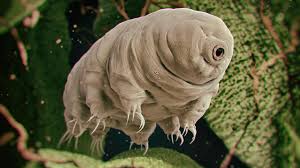
Mother Nature has this way of deflating our egos. Not only has a lowly virus been totally dominating our lives recently, but I’ve just read the most indestructible animal on Earth is an almost-as-lowly eight-legged segmented micro-animal named a tardigrade.
Also more affectionately known as a water bear, tardigrades can survive for up to 30 years without food or water, can endure extreme temperatures, exposure to radiation, and even the vacuum of space. “Tardigrades are extremely hardy animals,” says Thomas Boothby, a researcher at the University of North Carolina. “Scientists are still trying to work out how they survive these extremes.” So while the rest of us are delicate enough to have to worry about being wiped out by catastrophic events like asteroid strikes and supernova explosions, tardigrades are still expected to be around until our sun swells up and becomes a red giant about six billion years from now.
Having such a hardy life-form under our noses has profound implications for finding life elsewhere. For example, we think Jupiter’s moon Europa and Saturn’s moon Enceladus may have subsurface oceans with volcanic vents that may have the right conditions to host similar life. And this raises the chances of finding life somewhere else in our galaxy considerably. “It seems that life, once it gets going, is hard to wipe out entirely,” says David Sloan of the University of Oxford. “Huge numbers of species, or even entire genera, may become extinct, but life as a whole will go on.”
So no matter what happens to us, researchers say only the death of the sun will ultimately lead to the total extinction of life on Earth, which means tardigrades may be the last life-form standing.
Taken from “These ‘Indestructible’ Animals Would Survive a Planet-Wide Apocalypse” by Casey Smith at NationalGeographic.com (https://www.nationalgeographic.com/news/2017/07/tardigrades-water-bears-extinction-earth-science/?).
